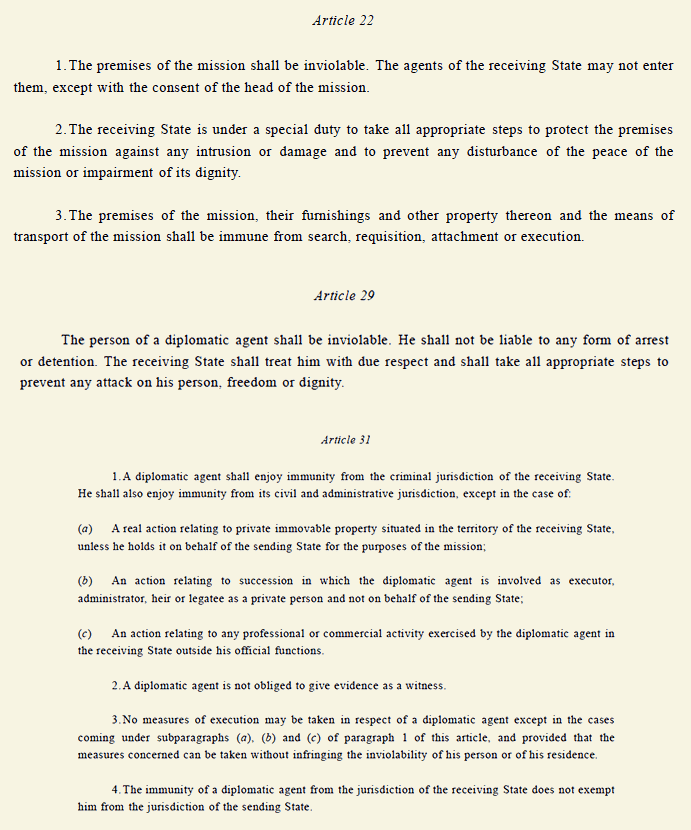AI Generated Summary
- This act of covert monitoring by a trusted Five Eyes partner is particularly alarming because it exemplifies a larger trend by this intelligence alliance—of which Canada, the United States, the United Kingdom, Australia, and New Zealand are members—to disregard India’s sovereignty and undermine its position on the global stage.
- the Five Eyes alliance, of which Canada is a part, has previously shown a troubling pattern of undermining India’s diplomatic sovereignty, with little regard for the safeguards that underpin diplomatic relations worldwide.
- As the Ministry of External Affairs noted, these leaks are part of a strategy “to discredit India and influence other nations,” which can only deepen the rift between India and Canada while eroding trust across borders.
The recent revelations of Canadian surveillance on Indian diplomats should shock us all. As India’s diplomatic corps faces an atmosphere fraught with “extremism and violence,” Canada’s covert surveillance and interception of their communications represents nothing short of a flagrant violation of the Vienna Convention and international diplomatic norms. Unfortunately, this is not an isolated incident: the Five Eyes alliance, of which Canada is a part, has previously shown a troubling pattern of undermining India’s diplomatic sovereignty, with little regard for the safeguards that underpin diplomatic relations worldwide.
The Vienna Convention, along with subsequent treaties on diplomatic and consular relations, has set clear boundaries designed to protect foreign diplomats from intimidation, interference, and surveillance by host nations. These are not merely ceremonial guidelines; they are integral to a functioning diplomatic system where states can engage in dialogue without fear of harassment or retaliation. Canada’s actions here violate these principles, stripping India’s consular staff of their right to conduct duties free from surveillance or intimidation. Even more concerning is the pretense that these intrusions are somehow justifiable on “technical” grounds—an evasive tactic that belies the gravity of these transgressions.

India’s Ministry of External Affairs has rightfully called Canada out for this breach, noting that Canada “cannot justify the fact that it is indulging in harassment and intimidation.” Such surveillance is not only a violation of diplomatic immunity but an act that further deteriorates already strained relations between the two countries. This act of covert monitoring by a trusted Five Eyes partner is particularly alarming because it exemplifies a larger trend by this intelligence alliance—of which Canada, the United States, the United Kingdom, Australia, and New Zealand are members—to disregard India’s sovereignty and undermine its position on the global stage.
BREAKING: CANADA HAS PLACED INDIAN DIPLOMATS UNDER AUDIO AND VIDEO SURVEILLIANCE
— Shashank Mattoo 🇮🇳 (@MattooShashank) November 2, 2024
India has discovered this and has lodged a formal protest with the Canadian govt about this pic.twitter.com/NjlrgWukMw
This alliance has a record of conducting intrusive operations against Indian diplomats. These actions do not just violate international norms—they suggest a systemic strategy to surveil and control, in direct contradiction to the professed values of democracy and international cooperation that these countries champion. Canada’s actions are just the latest in a series of incidents that expose the Five Eyes’ disregard for India’s legitimate security concerns, especially around issues as sensitive as Khalistani extremism.
Adding insult to injury, Canadian officials have reportedly leaked sensitive information to the Washington Post as part of a deliberate smear campaign against India. This tactic goes beyond standard political disagreement; it represents a calculated move to influence global opinion against India by seeding baseless allegations. As the Ministry of External Affairs noted, these leaks are part of a strategy “to discredit India and influence other nations,” which can only deepen the rift between India and Canada while eroding trust across borders.
India’s concerns are not hypothetical. The history of interference, combined with ongoing support for separatist voices that threaten India’s unity, makes Canada’s assurances of neutrality ring hollow. Prime Minister Justin Trudeau’s government has, time and again, appeared indifferent to the implications of fostering extremist elements within its borders. As Mr. Jaiswal said in his official statement, India has endured an “environment of extremism and violence,” an environment worsened by foreign interference rather than alleviated by meaningful cooperation.
The Five Eyes alliance has repeatedly justified its expansive surveillance practices under the guise of national security, but in the case of India, such practices target a democracy and key international partner. Canada’s surveillance of Indian diplomats is not just a diplomatic misstep—it is an abuse of power that reflects broader, troubling patterns within the alliance. It is high time the international community demands transparency and accountability from the Five Eyes partners when it comes to their treatment of diplomats from non-member nations.
India has taken a principled stand by issuing a formal protest, summoning the Canadian diplomat, and making it clear that this breach will have “serious consequences” for bilateral ties. But words must translate into broader diplomatic pressure. Canada and its allies must be held accountable for these violations, which undermine the very framework upon which international diplomacy rests. The Vienna Convention and other diplomatic agreements exist to ensure that nations can engage, negotiate, and resolve differences without fear of interference or surveillance. When powerful alliances like the Five Eyes abuse this framework, it is a global issue, affecting not just India but all nations with stakes in diplomatic integrity.
In a world that increasingly depends on mutual respect and cooperation, the systematic undermining of these principles is a step in the wrong direction. Canada and its allies must recognize that their actions have consequences, and India’s demand for accountability must be supported. We cannot allow any nation, no matter how powerful, to place itself above the principles that guide the global order. The credibility of international diplomacy depends on it.
The opinions expressed in this article are those of the author. They do not purport to reflect the opinions or views of Khalsa Vox or its members.




